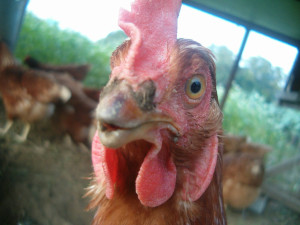 The first lawsuit against ag-gag laws will be filed in Utah today, arguing that it is unconstitutional to criminalize investigative journalists and animal welfare advocates who expose cruelty at factory farms and slaughterhouses.
The first lawsuit against ag-gag laws will be filed in Utah today, arguing that it is unconstitutional to criminalize investigative journalists and animal welfare advocates who expose cruelty at factory farms and slaughterhouses.
The lawsuit brings together activists, academics, and journalists who are directly targeted by the law: the Animal Legal Defense Fund, PETA, Professor James McWilliams, Daniel Hauff, CounterPunch, and myself.
Utah passed an ag-gag law in 2012, and it was the first state to attempt a prosecution. Amy Meyer was prosecuted for filming a slaughterhouse from the public street. News of her case went viral and the mayor and prosecutor were flooded with calls. Just 24 hours after I broke the story, all charges were dropped.
That was great news for Meyer, but the ag-gag law is still on the books. That’s where this lawsuit comes in.
It’s not enough to fend off these unconstitutional prosecutions one at a time. As Amnesty International wrote in opposition to ag-gag: “… abuses thrive in the dark. Time and time again, Amnesty’s research has shown that governments and corporations alike try to keep out of the reach of public and judicial scrutiny what they know can never be justified.”
I felt compelled to join this lawsuit because ag-gag laws are especially troubling to me as a journalist.
Utah’s law, and others like it, directly place both me and my sources at risk. There’s a long history of investigative journalism in this country based on exactly the type of research and whistleblowing that these laws criminalize. What if Upton Sinclair’s The Jungle were released today, accompanied by a YouTube video? He would undoubtedly be prosecuted under ag-gag.
Even if journalists themselves escape prosecution, ag-gag laws would make it impossible to report stories that are vitally important to the public. Whistleblowers and undercover investigators shine a light on criminal activity, and also standard industry practices. Without them, there is no meaningful window into animal agriculture; there would be no insight into the industry except for what the industry approves.
It should come as no surprise, then, that ag-gag laws are expanding to other industries. A bill pending in North Carolina right now is called the Commerce Protection Act. It doesn’t just criminalize those who blow the whistle on ag industry abuses– it includes all industries, from factory farming to fracking.
This lawsuit is an exciting step forward in rolling back these unconstitutional attacks on free speech and freedom of the press. I’m proud to be part of it, and I’ll keep you updated here as the case develops.